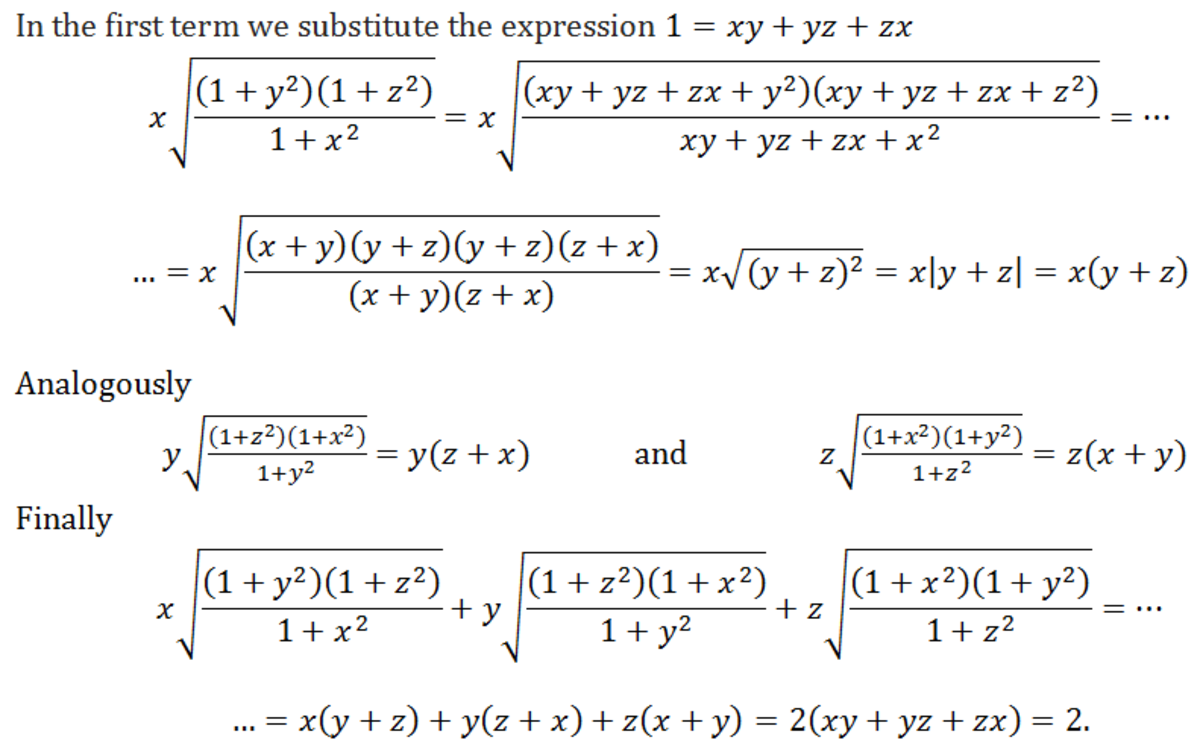Trigonometry in Algebra 3
x 1 + x 2 ( 1 + y 2 ) ( 1 + z 2 ) + y 1 + y 2 ( 1 + z 2 ) ( 1 + x 2 ) + z 1 + z 2 ( 1 + x 2 ) ( 1 + y 2 )
Given that x , y and z are positive reals satisfying x y + x z + y z = 1 , evaluate the expression above.
This problem is part of this set .
The answer is 2.00.
This section requires Javascript.
You are seeing this because something didn't load right. We suggest you, (a) try
refreshing the page, (b) enabling javascript if it is disabled on your browser and,
finally, (c)
loading the
non-javascript version of this page
. We're sorry about the hassle.
4 solutions
Since x , y and z are in the domain of positive integers,
One can assume that x = y = z where x , y , z are all positive :)
Put x=tanA, y=tanB, z=tanC
So tanA. tanB+tanB.tanC+tanC.tanA=1
Thus A+B+C=π/2 also 2A+2B+2C =π.
So on further simplification we get
Sin2A+sin2B+sin2C in numerator and in denominator 2.cosA.cosB.cosC
And we know that in a triangle sin2A + sin2B + sin2C =4 cosA. cosB. cosC
Thus we get the answer 2
I just let x=y=z=(1/3)^(1/2), then substitute to the given expression..
